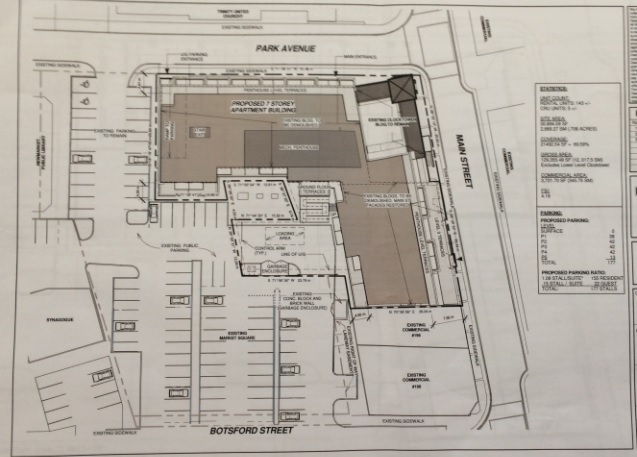Blair Taylor is a one term member of the Ontario Municipal Board. He was appointed in 2012 full-time and his term expires on 16 October 2017. Before joining the OMB Taylor was a senior Partner in the law firm of O'Connor, Macleod Hanna LPP. He practised in the municipal and development field. Clearly he lives and breathes the law but he is not very good at asking questions. 
He believes Parties should be represented by lawyers. As I tap this out I am reflecting on Bruce Krushelnicki's standard reference book "A Practical Guide to the Ontario Municipal Board" which solemnly states on page 237:
"... the Board takes very seriously the claim one does not need to be represented by counsel to appear before the Board and earnestly attempts to conduct fair hearings involving unrepresented parties."
It is taken as a given that lawyers know the law. That is what distinguishes them from lesser mortals. But they are also supposed to be good at thinking on their feet and arguing a case logically and coherently.
Unfortunately, there was little evidence of this on Wednesday from Blair Taylor. He took an inordinate amount of time taking down in longhand the names and addresses of participants and their email addresses. He asked one or two process questions about the diary commitments of counsel and when they were free. He would then pass these on to "the woman who must be obeyed" at the OMB who deals with the meetings matrix. Oh dear!
But on the matter of substance before the OMB he said absolutely nothing. I could have done a better job. As it happens, I woke up this morning startled to realise I had been dreaming about a different Blair Taylor - one who deftly handled the Clock Tower prehearing. I was full of admiration. This is how it all unfolded:
Blair Taylor: Good morning everyone. Today we meet as a prehearing. We shall be agreeing the logistics of the hearing proper including the start time, its expected duration and location and housekeeping matters of that kind. That said, I shall want to touch on the central issues which will arise at the main Hearing on the Clock Tower appeal which will follow on dates to be agreed. I want to get an idea of what is in prospect.
Mr Kagan, can I invite you to say a few words about the main issues as you see them and the nature of the appeal.
Ira Kagan: Well, Sir, you have in front of you two appeals. The first relates to the refusal of my client's application for the Clock Tower development which was rejected by the Town of Newmarket on 5 December last year. We are also appealing on a related issue concerning the applicability of the Town's Heritage Conservation District By-law. These are, in truth, old issues and things have moved on a bit.
Blair Taylor: I want to come back to that. But, for the moment, proceed.
Ira Kagan: My client needs Town-owned land for his proposed development but there was a tacit agreement entered into with the Town in June 2013...
Blair Taylor: Can I just stop you there Mr Kagan. Are you telling the Board the Clock Tower development cannot be built without Town-owned land being made available?
Ira Kagan: Well it is not quite as straightforward as that. My client had the tacit consent of the Town in June 2013 that its lands would be made available.
Blair Taylor: Was there a binding agreement or tacit consent? And if it was the latter, what do you mean by tacit consent?
Ira Kagan: As you know, Sir, a tacit agreement is created or has effect by operation of law rather than by being directly expressed.
Blair Taylor: Mr Longo? Was there an agreement - formal or informal - that was entered into in June 2013? And how would you define "tacit consent"?
Leo Longo: I am advised that my client received a land exchange request from the Clock Tower developer but deferred any final decision on that proposal until the application had gone through the usual public planning process and received development approval from the Council. And, of course, that never happened. So there was no binding agreement.
Blair Taylor: Mr Kagan you are putting before the Board this morning two options. Option A concerns the matter under appeal and Option B, as I understand it, relates to a completely different application. You have long experience. When did you last present two options to a Board prehearing? Does this happen often? And which one are you asking the Board to consider? I cannot decide on both.
Ira Kagan: Well, Sir, let me explain. Option A cannot be built because it relies on getting Town owned land which is not forthcoming. Option B is a slight variation of Option A but it sits wholly on land owned by my client. Apart from that there is no difference whatsoever between A and B.
Blair Taylor: Mr Longo?
Leo Longo: This is, in effect, a new application with very substantial variations from the original application. I only received notice of this on Monday evening and I have not had the opportunity to take instructions from my client. But, at first blush, it seems to me the Town would want to consult the public after getting a full set of background documents and not just the drawings we have in front of us. I note they are dated 1 May. This is a very unusual situation we find ourselves in and I sympathise with the Board. You have been put, Sir, in a difficult position as a result of the actions of my friend opposite. (Mr Kagan)
Blair Taylor: I agree. This is most unsatisfactory. We owe it to the public to case manage in an effective and responsible way and that means no ambushes. If I can quote my excellent OMB colleague Bruce Krushelnicki who says on page 231 of his authoritive guide to OMB practices and procedures:
"An important principle of hearings and something that can readily be required in the pre-hearing process is the prior disclosure of the major elements of a case. Hearings are not supposed to be secret attacks based on ambush and surprise."
Ira Kagan: (Eyebrow arched. Inaudible.)
Blair Taylor: We heard from Mr Prentice earlier on behalf of the Architectural Conservancy of Ontario. He is not a lawyer but he seems to have the knack of asking concise and pertinent questions. It is abundantly obvious he has been following things with exemplary conscientiousness for a good while.
Mr Kagan, do you think it is fair to him and to others like him that you drop this new application - whether it is a revision or something else I cannot say - on to their laps without a by-your-leave? Is this a satisfactory way to proceed?
Ira Kagan: (bows his head and mutters something. inaudible)
Blair Taylor: I am going to adjourn the prehearing for 45 minutes to get some answers to these and other questions. I would ask the public to remain as we are going to get through this today and find a way forward.
(Now scanning the audience) Mr Prentice. Yes, you. Mr Prentice I'd like you to join us.
(I made the last bit up.)
This email address is being protected from spambots. You need JavaScript enabled to view it.
Meaning of Tacit as in Tacit Consent:
Silent; not expressed; implied or inferred; manifested by the refraining from contradiction or objection; inferred from the situation and circumstances, in the absence of express matter. Thus tacit consent is consent inferred from the fact that the party kept silence when he had an opportunity to forbid or refuse. (Black's Law Dictionary)

